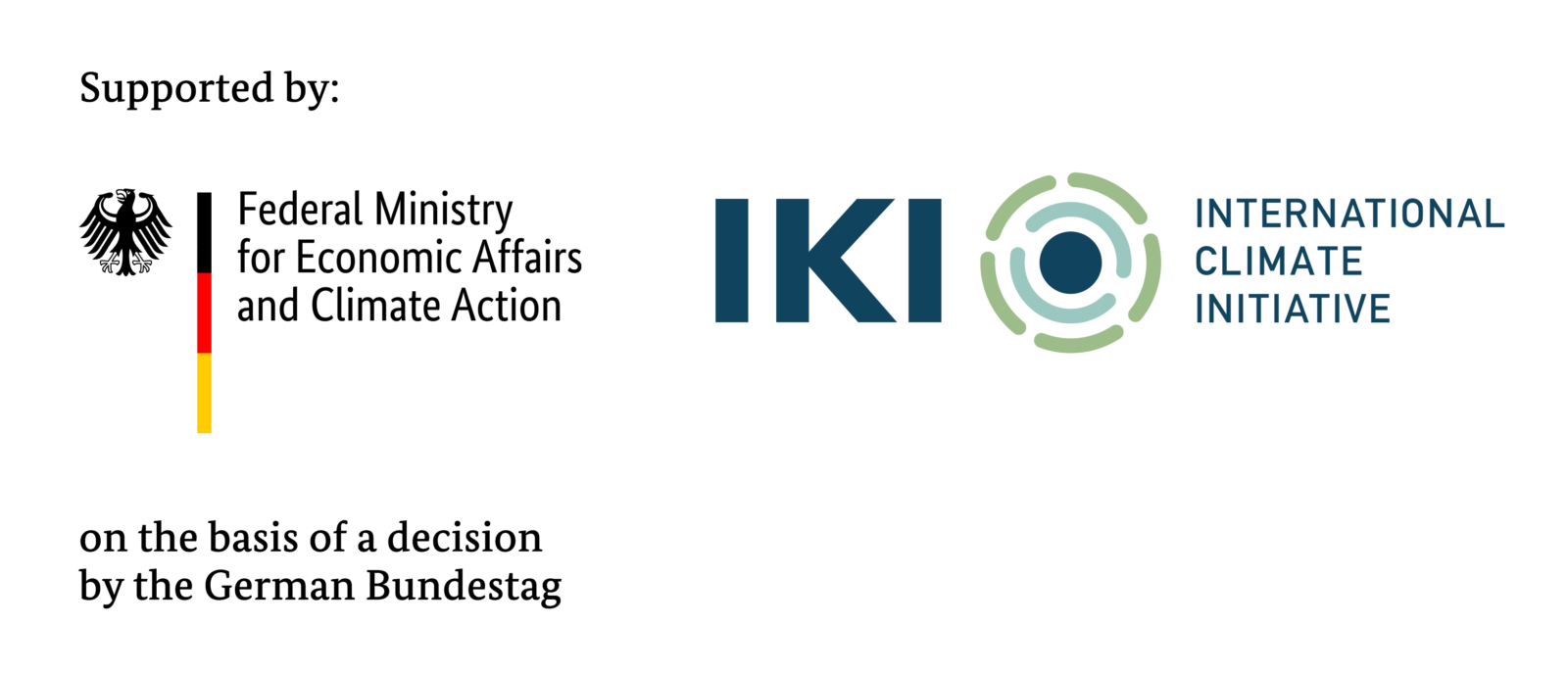MGI Webinar Report: “Linking COVID-19 Response to Climate Action”
On January 29, the first public webinar of the Morgenstadt Global Smart Cities Initiative (MGI) was held. Under the precept of linking COVID-19 response to climate action, input presentations by international experts were held and discussed by an audience from around the globe.
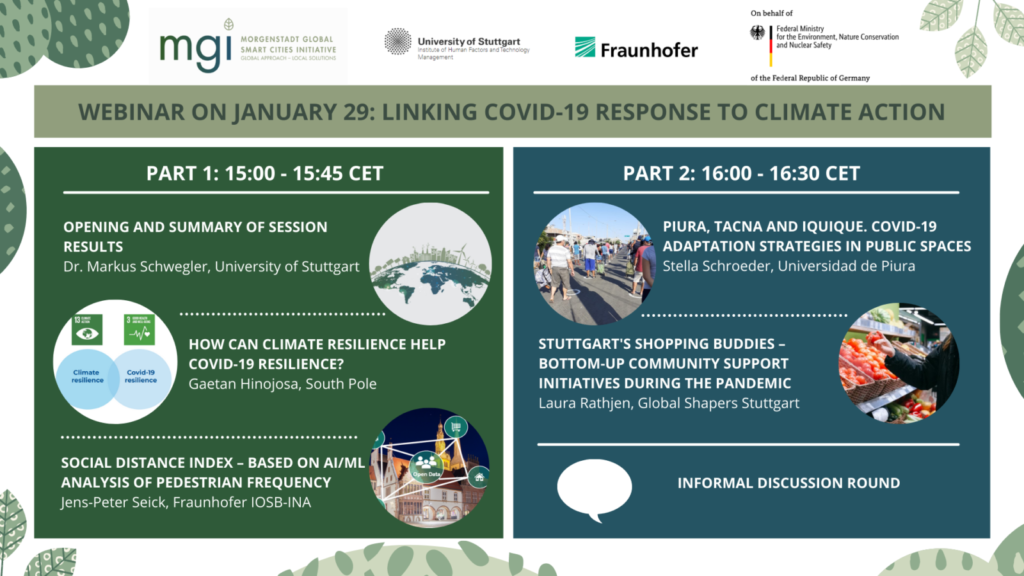
Levers and Intervention Areas Between COVID-19 and the Climate Crisis
After a short introductory presentation of the current project status by project coordinator Dr. Markus Schwegler from the University of Stuttgart, Sophie Mok from the Fraunhofer IAO, presented a summary of the results of the interactive working session on COVID response and climate action last year in July. The objective was to facilitate exchange between the partner cities on main impacts and challenges in COVID-19 recovery strategies and to explore the areas of intervention for tackling both the Corona as well as the climate crisis.
The input presentations of the webinar corresponded to the levers identified as most important to overcome the COVID-19 crisis by the MGI consortium: knowledge and education, stakeholders and structures, policies, financing and resources and digitalization. Out of the presented intervention areas at the intersection of both crises, participants of the webinar were asked to prioritize the suggestions (See Figure 2). Strong communities and neighborhoods were deemed as most important, with multifunctional green spaces as second most important, followed closely by homeoffice and new flexible work as well as local and urban farming and finally cycling and walking.
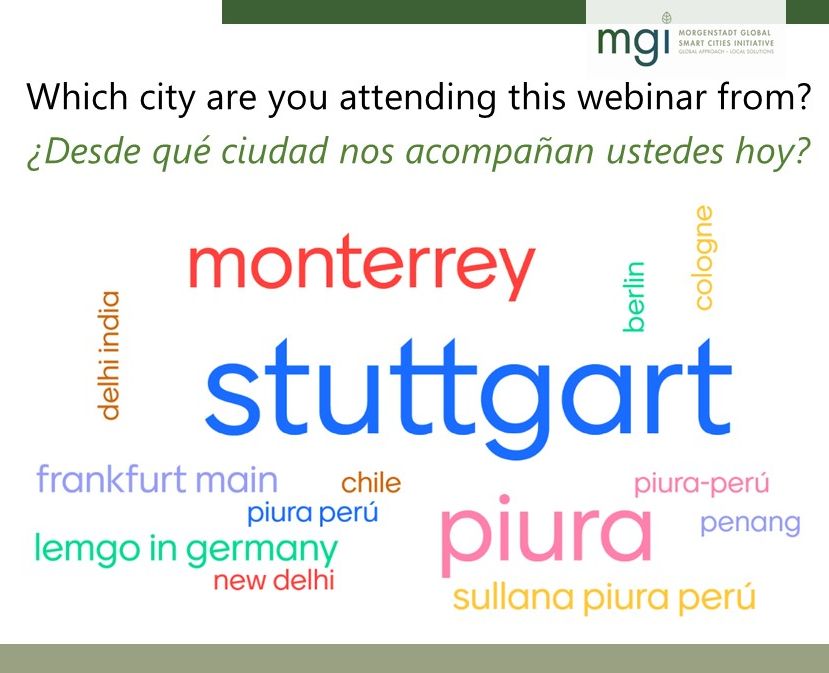
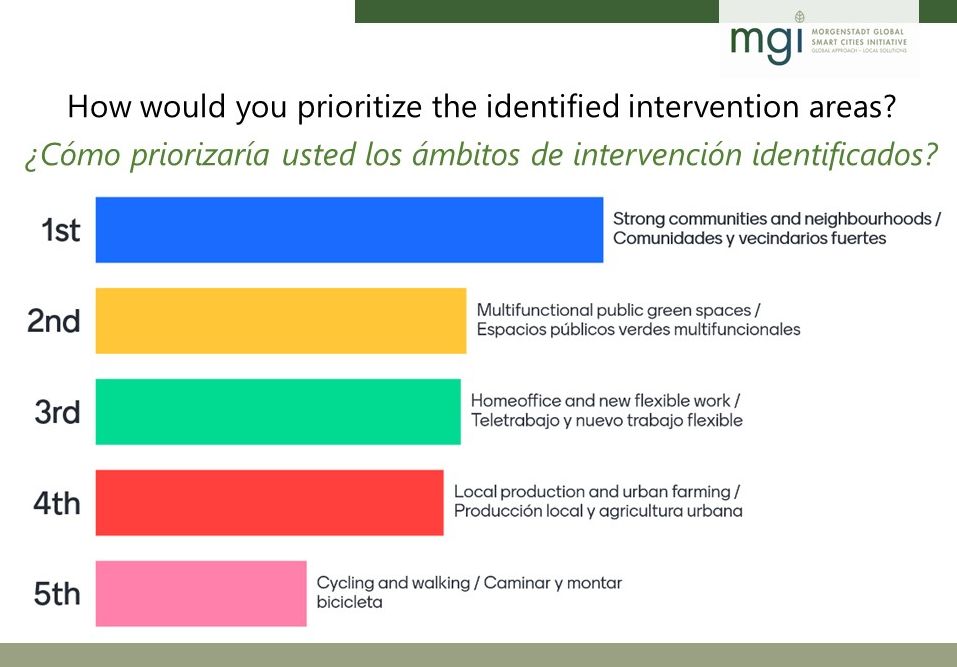
Parallels between Climate and COVID-19 Resilience and Financing
The first input presentation was held by Gaetan Hinojosa from South Pole. He emphasized the distinct intersection of climate and COVID-19 resilience as both affect our health and livelihoods particularly with regard to vulnerable populations. The parallels are especially pronounced in the sectors energy and urban planning. Green infrastructure and green urban spaces for example, battle the urban heat island effect and lower air pollution thereby decreasing the risk of respiratory illnesses while at the same time enhancing wellbeing by providing recreational areas accessible even during Corona induced restrictions.
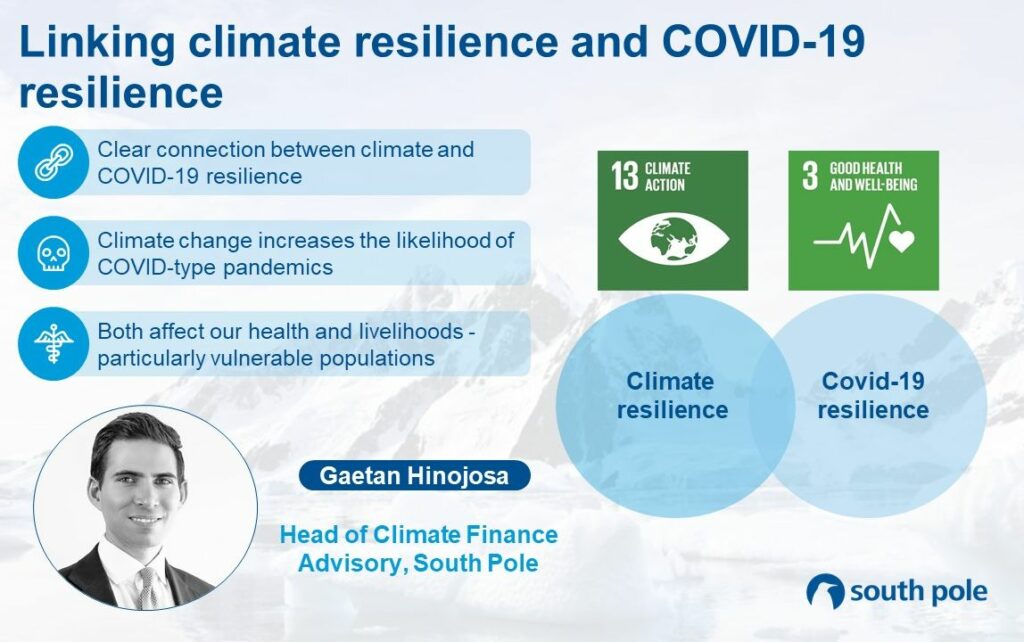
Recognizing that both the problems as well as the solutions of the two crises are closely connected, and in many cases interdependent, calls for efforts towards a sustainable COVID-19 recovery and entails the question of financing. Two concrete examples were focused upon in the presentation: green economic recovery plans for businesses and redesigning cities and investing in climate resilient urban measures.
While forming the backbone of most country’s economy, Small and Medium Enterprises (SMEs) have been severely affected by the Corona pandemic and therefore should be in the focus of financing post COVID sustainable recovery. Furthermore, green recovery plans that aim to boost economic activity while simultaneously reducing CO2 emissions have been found to be better for employment, environment and GDP than a standard “return to normal” approach reducing VAT rates and encouraging households to resume spending. Combining these assumptions, South Pole is co-managing the Swiss Technology Fund that provides loan guarantees for SMEs that sell sustainable products and services.
The second strategy sees the redesign of cities and investment in climate-resilient urban measures. As mentioned before, environmentally friendly urban infrastructure promotes climate resilience as well as resilience to COVID-19 impacts. In this area, South Pole is managing the City Finance Lab (CFL) which supports the development of innovative financing solutions for sustainable cities.
Smart Decision-Making Based on Reliable Data
As mentioned before knowledge-based decision making is a key lever of approaching problems caused by both the Corona as well as the climate crisis. In this context digitalization and reliable and real-time data in specific are key. Providing a practical example, the second presentation was given by Jens Peter Seick from the Fraunhofer IOSB-INA, Project Manager of the IoT living lab “Lemgo Digital”.
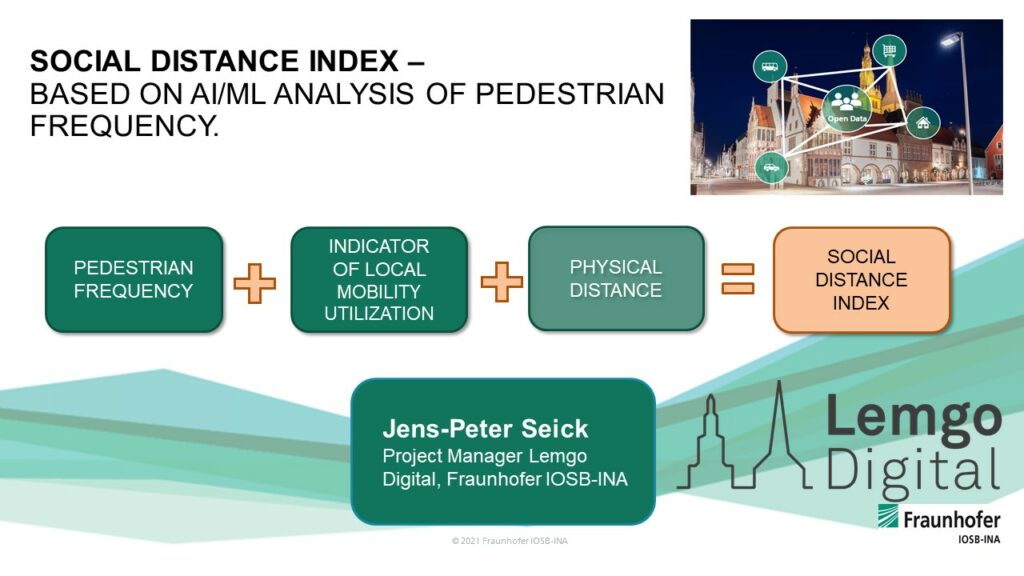
As the living lab is focusing on utilizing digitalization to provide benefits for citizens in the city of Lemgo, the severe impacts of COVID-19 on city centers open up a wide field of action. The retail sector already had a high demand for digital solutions before the Corona crisis, which is now on the rise due to the increasingly difficult economic situation. One key approach is sensor technology for situation recognition, which can be used to measure pedestrian traffic, among other things. In times of a pandemic, data tracking such as the Social Distance Index could be used on the one hand as a decision-making tool for measures and, on the other hand, as a practical aid for compliance with social distancing rules. These cases of smart use of data and technology demonstrate their multifunctional nature and unquestionably provide value beyond the Corona crisis. This specific example shows how the crisis has highlighted and exacerbated existing trends like the shift from local retail to online and mail order, thereby creating an even more urgent need for solutions.
The Importance of Neighborhoods and Active Citizenship
The disruption of our everyday life caused by the COVID-19 pandemic revealed the human potential for radically adapting behavior in times of crisis, as well as reevaluation of personal as well as public priorities. On this topic, Stella Schroeder, teacher and researcher at the University of Piura, presented a recent study on adaption strategies in neighborhood public spaces during the COVID-19 pandemic carried out in collaboration with seven universities in Peru and Chile. She stressed the fact that the current pandemic is both a problem as well as an opportunity, as it has transformed our relationship with urban space, encouraging active citizenship.
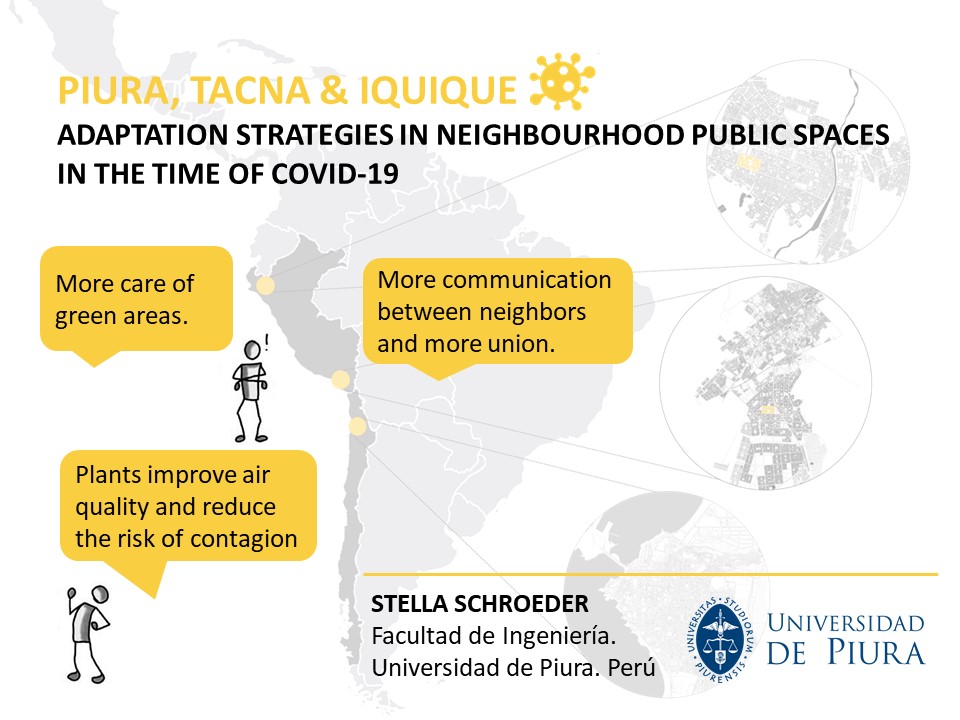
The field work was carried out in September and October 2020 via online as well as offline surveys in the three medium-sized desert-cities Piura (Peru), Tacna (Peru) and Iquique (Chile). The results indicated that the COVID-19 crisis impacted citizen’s daily life more than anything else in the last 20 years, even more than climate risks like earthquakes and the El Niño phenomenon, which are prevalent in the cities. As a result, people prefer smaller public spaces in their direct neighborhood over big public parks and there was an increase of informal stationary sale and small new businesses. All in all, the direct neighborhood grew more important, as citizens preferred walking over public transport and were staying close to their homes. Consequently, the areas are kept orderly and clean in self-organization by the neighbors and embellishment as well as urban farming are practiced more intensely.
The temporary urban solutions necessitated by the impacts of the pandemic hold the potential for positive changes in urban space if translated into mid to long-term solutions. A permanent transformation towards improving urban resilience with regard to climate risks as well as the wellbeing of populations requires a continuation of changes in personal habits, policies, incentives and infrastructures.
Local Impact for Global Change
Further emphasizing the growing importance of community in times of Corona, the last presentation was held by Laura Rathjen, co-founder and impact officer of the Global Shapers Stuttgart Hub on the bottom-up community support initiative “Stuttgart’s Shopping Buddies”. During the pandemic, the demand for the services of food banks has increased, but due to the necessary hygiene and social distancing measures resulting in long waiting lines, access has become more difficult.
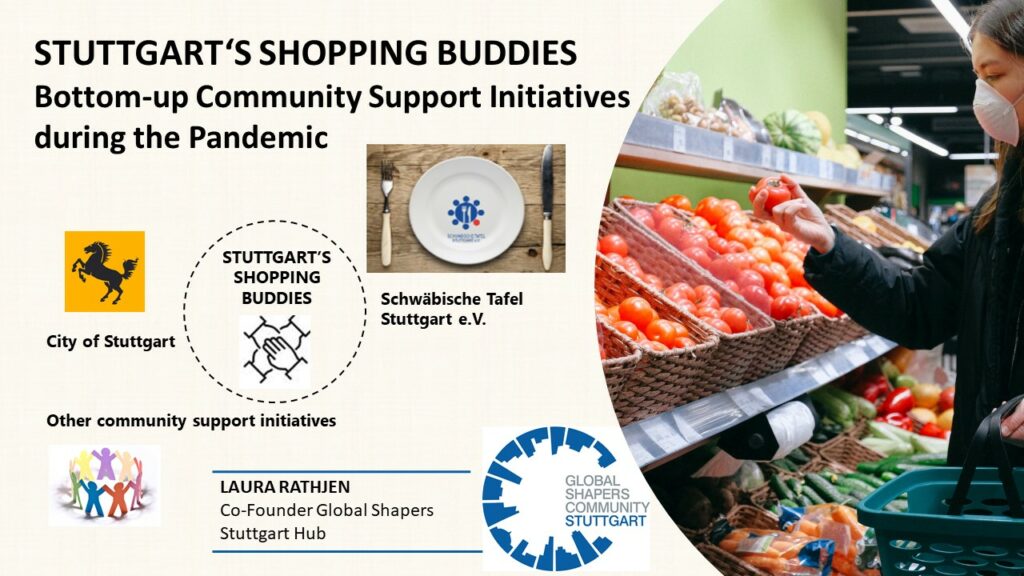
The initiative was formed in March 2020 during the first wave of the pandemic in Germany and supports those who are not able to go to the food banks under the new circumstances. This ensures not only the physical needs of people who are at high risk due to their age or state of health, but also offers emotional support and fosters neighborhood solidarity.
As the youth organization of the World Economic Forum, the Global Shapers Community focuses on local impact for global change in climate and environment, education and employment as well as equity and inclusion. With the outbreak of the pandemic, COVID-19 impact has become an additional focus area and the hub is collaborating closely with the city of Stuttgart on connecting volunteers and people in need, not only in terms of the current crisis but also or the future, in view of climate action.
To sum up, the webinar illustrated the ways in which COVID-19 impacts and climate risks relate to one another and might present opportunities to synergize in enhancing global crisis resilience. It offered international as well as interdisciplinary perspectives on financing green COVID recovery, smart use of data and technology, active citizenship in transforming urban space as well as the importance of solidarity and community to overcome crises.

